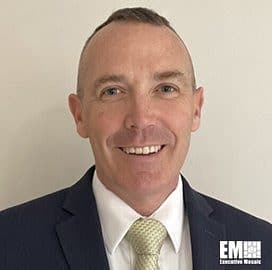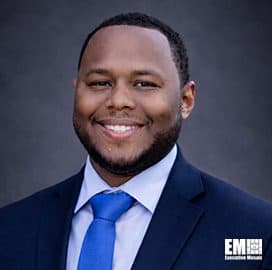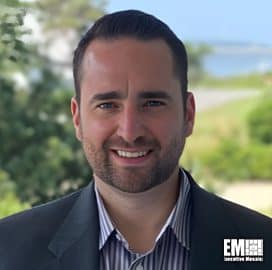
Member Profile: Aaron Angell
Aaron Angell notched a lengthy military career in a series of active duty and civilian roles before coming to industry. A U.S. Marine, Angell oversaw squadrons of hundreds of fellow Marines in training and operational deployment for the Iraq War as a company commander and logistics officer, and more recently was director of the Weapons Systems Management Center at Marine Corps Logistics Command and director of the Logistics Combat Element Division for USMC’s Combat Development and Integration wing.
Now director of growth at Rune Technologies as of Sept. 2025, Angell spoke with us as a new Potomac Officers Club member. Welcome to the club, Aaron!
Potomac Officers Club: What can you tell us about your background and how you’ve been able to adapt to the ever-changing challenges of the federal landscape over the course of your career?
Aaron Angell: I have learned so much from a military career focused on logistics and planning in support of national security. My experiences span organizations from the dynamic military front lines and all the way back to the robust industrial base. The result: Actionable understanding of the inter-related activities of logistics at the local, theater and global levels. I have also sought out opportunities to continually expand understanding of military and civilian logistics and operations. The objective is to consistently connect operational gaps with emerging technological solutions, and then pay those lessons forward by inspiring others to grow.
POC: What do you believe are your core strengths as a leader and what lessons taught you the most about driving success?
Angell: Success can be relative to the team you are on, and the objectives that you and your team are focused on. I have been fortunate to have been on some real successful teams and those experiences bring pride, excitement and great memories. Personally, I have found the greatest success in being open and honest with the team, and exuding confidence and competence. You will not have the right answer all of time, or a complete answer all of time, but being actively engaged for organizational success is key to personal success.
POC: How would you describe your management style and core values towards building a winning culture?
Angell: Culture is so important. The way you act and how you act in a 360-degree context is a huge part of that culture. Leadership is a people business, and therefore treating people with dignity and respect is critical to establishing a comfortable organizational climate… one where every person on the team feels valued, and where fresh ideas and a “red team” mentality are accepted for the good of the organization.
POC: What are the core values that you believe are essential to build a great team and establish a foundation to drive success in such a competitive industry?
Angell: Drawing from a Marine Corps background, my instinctive response to core values are honor, courage and commitment. This can sound very military and disciplined, though I have realized that those values were instilled in me far before I became a Marine. Trust relates to all relationships — your team, your boss, your customers and your family. Courage is crucial, whether that be moral courage to step up when something is not right, as well as the courage to voice your perspective. And commitment to the team, family and mission is the glue that binds. Honor, courage and commitment are far more than an instinctive motto. These are critical values to the personal and organizational success.
POC: How would you advise someone entering our industry to build their resume and advance their careers to be in the best position in the years to come?
Angell: Your network is far more important than your resume. Certainly you need experience that is relevant for a position you are aspiring to, though that experience can vary from what could be seen as the “traditional track.” You still need a resume, and have that at the ready. Far more important is building your network. Every interaction is an opportunity to build your network. Think about the symbiotic relationships with everyone you meet. It is not just about YOU – you getting a job, you getting a promotion, you getting the sale. It is about the value that both of you can offer each other. Seek ways to help others, and that will be paid forward.

Category: Executive Profiles




